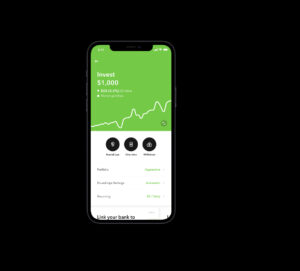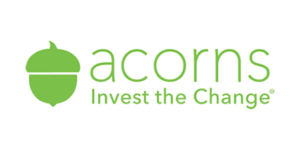Acorns is a popular financial app that allows users to invest their spare change automatically. It is a simple and effective way for people to start investing without having to worry about managing their investments.
One question that often comes up for people considering Acorns is whether or not the app is FDIC insured.
Yes. All Acorns Checking accounts are insured by the FDIC up to at least $250,000 per depositor, per ownership category. FDIC insurance applies only to accounts held in the United States and its territories and possessions.
Sign up for Acorns today and receive a free $5 to start your investing journey!
In this post, I will answer that question and explain what FDIC insurance is and why it is important.

What is FDIC Insurance?
The Federal Deposit Insurance Corporation (FDIC) is an independent agency of the United States government. It was created in 1933 in response to the banking crisis of the Great Depression.
The FDIC’s main purpose is to provide insurance for bank deposits. If a bank fails, the FDIC will step in and pay out deposit insurance to the bank’s customers up to the insured limit.
This limit is currently $250,000 per depositor, per insured bank.
Why is FDIC Insurance Important?
FDIC insurance is important because it provides protection for bank customers in the event of a bank failure.
If a bank fails and a customer’s deposits are not insured, they may lose their entire savings.
FDIC insurance provides peace of mind for customers and helps to maintain confidence in the banking system.
Is Acorns FDIC Insured?
Acorns is not a bank, so it does not provide FDIC insurance. However, Acorns does work with a partner bank, which does provide FDIC insurance for the funds held in Acorns checking accounts.
The partner bank is currently Lincoln Savings Bank and nbkc bank, which is a member of the FDIC.
This means that any funds held in an Acorns account are insured by the FDIC up to the current limit of $250,000 per depositor, per insured bank.
If you want to learn how to use the Acorns investment app effectively, be sure to check out my post on the topic!

How Does FDIC Insurance Apply to Acorns Accounts?
When you use Acorns, your funds are held in an Acorns account. This account is a brokerage account that is held at the partner bank, Lincoln Savings Bank and nbkc bank.
The funds in your Acorns account are invested in a portfolio of ETFs (Exchange-Traded Funds) that are managed by Acorns.
These ETFs are not insured by the FDIC, but the cash balance in your Acorns checking account is insured by the FDIC up to the insured limit.
It is important to note that the FDIC insurance for your Acorns account only applies to the cash balance in your checking account.
The ETFs that you invest in through Acorns are not insured by the FDIC, and their value can go up or down depending on market conditions
What Happens if Lincoln Savings Bank or nbkc bank Fails?
If Lincoln Savings or nbkc Bank were to fail, the FDIC would step in and pay out deposit insurance to Acorns customers up to the insured limit of $250,000 per depositor, per insured bank.
This means that your cash balance in your Acorns account would be protected by the FDIC in the event of a bank failure.
However, it is important to note that if Lincoln Savings or nbkc Bank were to fail, it could impact the value of the ETFs held in your Acorns account.
If this were to happen, Acorns would work to transition your account to a new partner bank and ETF portfolio.
If you are interested in learning about other users’ experiences with making money on Acorns, be sure to check out the post “Has anyone made money on Acorns?” for insights

Conclusion
In summary, Investment in Acorns is not FDIC insured, but the cash balance in your Acorns checking account is insured by the FDIC up to the current limit of $250,000 per depositor, per insured bank.
The partner bank that holds your Acorns account, Lincoln Savings or nbkc Bank, is a member of the FDIC, which means that your funds are protected in the event of a bank failure.
However, it is important to note that the ETFs that you invest in through Acorns are not insured by the FDIC, and their value can go up or down depending on market conditions

